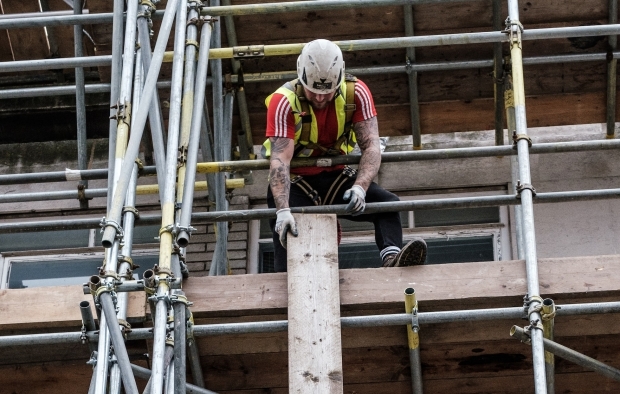

Scaffolding Safety Tips to Help You Stay Safe
When working with scaffolding, working at a height with a temporary structure brings its own unique potential issues in the workplace.
Falls from raised positions can lead to devastating injuries or, in the worst-case scenario, death. This article aims to offer six ways to stay safe when working on scaffolding:
Wear proper safety equipment
Scaffolding can usually be found on a building site, an environment that has seen its fair share of accidents involving falling objects. The use of a hard hat is essential, as well as wearing non-slip footwear to avoid falls due to a loss of grip. When working at a height, the need for solid footing is of vital importance when trying to stay safe while working.
Mind load limits and check materials
Scaffolding is made with specific load-bearing capabilities in mind. It is imperative to use the correct materials and designs for the equipment and set-up you have. Any deviation can result in cracks, breaks, or a total collapse of a structure, a result that will inevitably lead to injuries to those working on it.
Make sure to inspect all materials before starting. Look for defects or damage that may lead to compromising the integrity of the equipment.
Keep vehicles and heavy equipment clear
On a busy building site, there will inevitably be heavy-duty machinery within the vicinity. Care should be taken to ensure these vehicles do not go near the scaffolding, avoiding the potential for a collision and damage to the structure.
Climb responsibly
There are techniques that should be employed by those climbing scaffolding that mitigate the possibility of falls. Make sure to always have at least three points of contact with the structure and seek to avoid putting sheer weight on cross braces – these are not designed to take that kind of direct pressure.
Stay organised
Have a final check at the end of a day on site to see if any tools or equipment have been left out. By encouraging those working on the scaffolding to put all tools away, the platform surface is clear and the risk of trips and falls is reduced.
Review the weather
Being aware of the weather conditions for the day plays a role in the management of workers on scaffolding. High winds, for example, can cause major problems for those working at height in an exposed environment. Rain can create slippery surfaces that may result in a loss of footing or hands failing to grasp a railing. Only work when the conditions allow you to do so safely.
Why choose Winns?
If you’ve been in an accident on a building site, involving scaffolding, that wasn’t your fault, call the team at Winns now for a helping hand. Our dedicated team of advisors will arrange all aspects of your claim, from pursuing personal injury compensation to sorting suitable medical assessment and treatment to get you back to a form of normality as soon as possible.
Providing support with every step of the journey, our team will handle all of the legal obligations that come with making a claim and do so with your best interests at heart. With decades of experience, we can help you today.
Contact us now by phone 24-hours a day or request a call back for a time that suits you.
Share this article
Request a Callback
Had an accident that wasn’t your fault? Leave your details and we’ll call you back.
Thank you
Thank you for your request, one of our team members will be in touch shortly.
Find Out More


